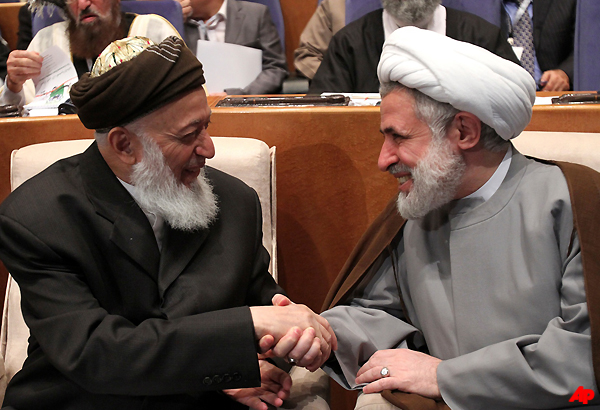Kabul, Sept 21: Former Afghan President Burhanuddin Rabbani sought to bridge Afghanistan's divide, but instead ended up one of the conflict's many victims. The former leader, fighter and finally peace envoy, whose shifting fortunes and loyalties matched the complexity of his splintered nation, was assassinated by a suicide bomber on Tuesday. He was about 70 years old.
The assassination marked another dark chapter in a war that the U.S.-led coalition is preparing to exit, with international troops set to leave Afghanistan by 2014.
For the past year, Rabbani had been in charge of a government peace council that tried to facilitate contacts with Taliban insurgents. But the council failed to make headway as warring sides and disparate groups maneuvered for an edge in the long-running conflict.
Rabbani was assassinated Tuesday by a suicide bomber concealing explosives in his turban, a tactic that has been used with lethal effect against other Afghan officials.
He was president from 1992-1996, heading the Afghan government that preceded the Taliban rule. After he was driven from Kabul in 1996, he became the nominal head of the Northern Alliance, mostly minority Tajiks and Uzbeks, who swept to power in Kabul after the Taliban's fall. Rabbani is an ethnic Tajik.
The soft-spoken Rabbani used to spend most of his time translating poetry before assuming political power in Afghanistan, with its trappings of heavily armed bodyguards and armored vehicles with tinted windows. In 1996, as leader of a country contested by nearly a dozen factions, he vowed to resist the Taliban even as the Islamic fundamentalist force closed in on the capital.
“We are ready to force the Taliban out of rocket range,” he said in an interview with The Associated Press shortly before he was ousted. “That might make them ready to negotiate a peace agreement with us.”
In the 1996 interview, Rabbani also said the United States should help put together a government representing Afghanistan's various factions: “They are a powerful country and they must do their duty.”
Rabbani's up-and-down political career was entwined with the wars that have torn Afghanistan for decades, well before the U.S.-led invasion that ousted the Taliban in 2001 because of their support for Osama bin Laden.
Born in 1940 outside Faizabad in northeastern Badakhshan province, he studied Islamic law at the University of Kabul. Fluent in Arabic, he also translated Persian poetry while attending Al-Azhar University in Egypt, before returning to Kabul to join the Faculty of Islamic Law.
There he formed the Jamiat-e-Islami group after Afghanistan's king was toppled and forced into exile by a cousin, Mohammed Daoud, with the help of the country's communist Khalq and Parchami parties.
Rabbani spent nearly two decades in exile. He fled to neighboring Pakistan after a bungled coup attempt against Daoud in 1973.
Ahmed Shah Massood, the Northern Alliance military commander who was assassinated two days before the Sept. 11 terror attacks in the United States, joined Rabbani in Pakistan.
When Daoud was overthrown by his communist allies, which led to the intervention of Soviet troops at the end of 1979, Rabbani and Massood launched a jihad, or holy war, against the regime. Rabbani was the political chief, Massood its military leader.
Jamait-e-Islami was one of seven Pakistan-based anti-communist groups that received backing from the United States and other Western countries to wage war against the Soviet Union.
After the Soviet withdrawal in 1989 and the collapse of Afghanistan's Marxist government in 1992, Rabbani and the other six rebel leaders agreed to form a government.
But long-standing rivalries and animosities soon plunged the groups into conflict and prevented any real government.
In January 1994, three factions allied against Rabbani, who had refused to relinquish his hold on the rotating presidency.
For a full year Kabul was engulfed in civil war. Neighborhoods were controlled by different factions, with gunmen on every street corner. Entire neighborhoods were wrecked and an estimated 50,000 people died.
Chaos across Afghanistan led to the rise of the hardline Taliban religious militia, which forced Rabbani's forces to flee the capital in 1996.
His and other factions were driven into a corner of Afghanistan, where they put aside their feuds to unite in the fight with the Taliban. It was this Northern Alliance, with the help of the U.S. bombing campaign, that swept south and returned Rabbani to Kabul. He then professed loyalty to Afghanistan's new leader and current president, Hamid Karzai.
Even so, Rabbani was viewed with concern because he had presided over ferocious fighting in a quest to cling to personal power in the mid-1990s. He sought to dispel those fears in a 2002 interview with the AP.
“From now on,” he said. “I am going to commence my activities for the national unity of Afghanistan.” AP

